As an upper-class woman during the Victorian era, Florence Nightingale (1820-1910) was not destined to have its own space in history, much less to serve as a reference for future generations. However, from her childhood she had, like her sister, the possibility of accessing a quality education based essentially on language learning and mathematical training. She was born in 1820, in the city of Florence, which is why her parents named her in such a way, but she immediately moved to England, where she would begin to educate herself to achieve the feminine ideal that was expected of her, as a woman of the 19th century. .
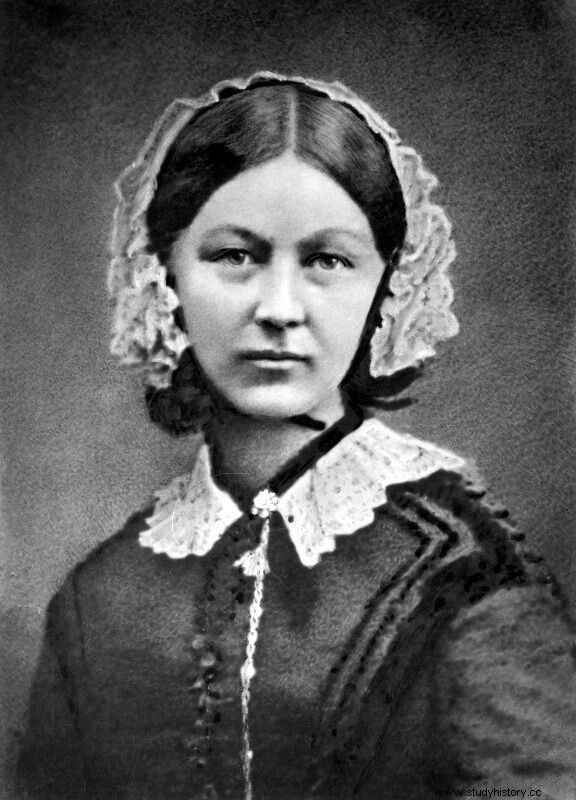
The future that awaited him if he followed the marked line from the family nucleus it was concrete, their work would be relegated to the domestic sphere and under the yoke of guilt that original sin supposed, organizing their home and raising their children would be their greatest responsibilities. This does not mean that the women of the time did not have the possibility of forming part of the labor network, since there were certain trades not only carried out by women, but that were especially intended for them:those related again to the organization of the home, as a housekeeper, maid or cook, teaching, but only in the domestic sphere and only to the girls who resided in the houses, as well as the secretarial and most administrative positions, which are relegated to the female sector.
The profession to which Florence will dedicate her life belongs in the same way to this group of trades traditionally held by women, nursing. At first, the infirmary was linked to the humanitarian work that wealthy ladies were forced to carry out, but it also served as an outlet for young people with financial need and was not very well seen, since they involved dealing with all kinds of people, in normally unhygienic conditions. Nursing was not regulated and the women dedicated to it did not receive academic training. It is here that the figure of Florence Nightingale is essential since she constitutes a before and after in the treatment of this important health discipline. Nightingale, will be the pioneer of modern nursing , because she will turn it into a job with compulsory training and advanced health knowledge.
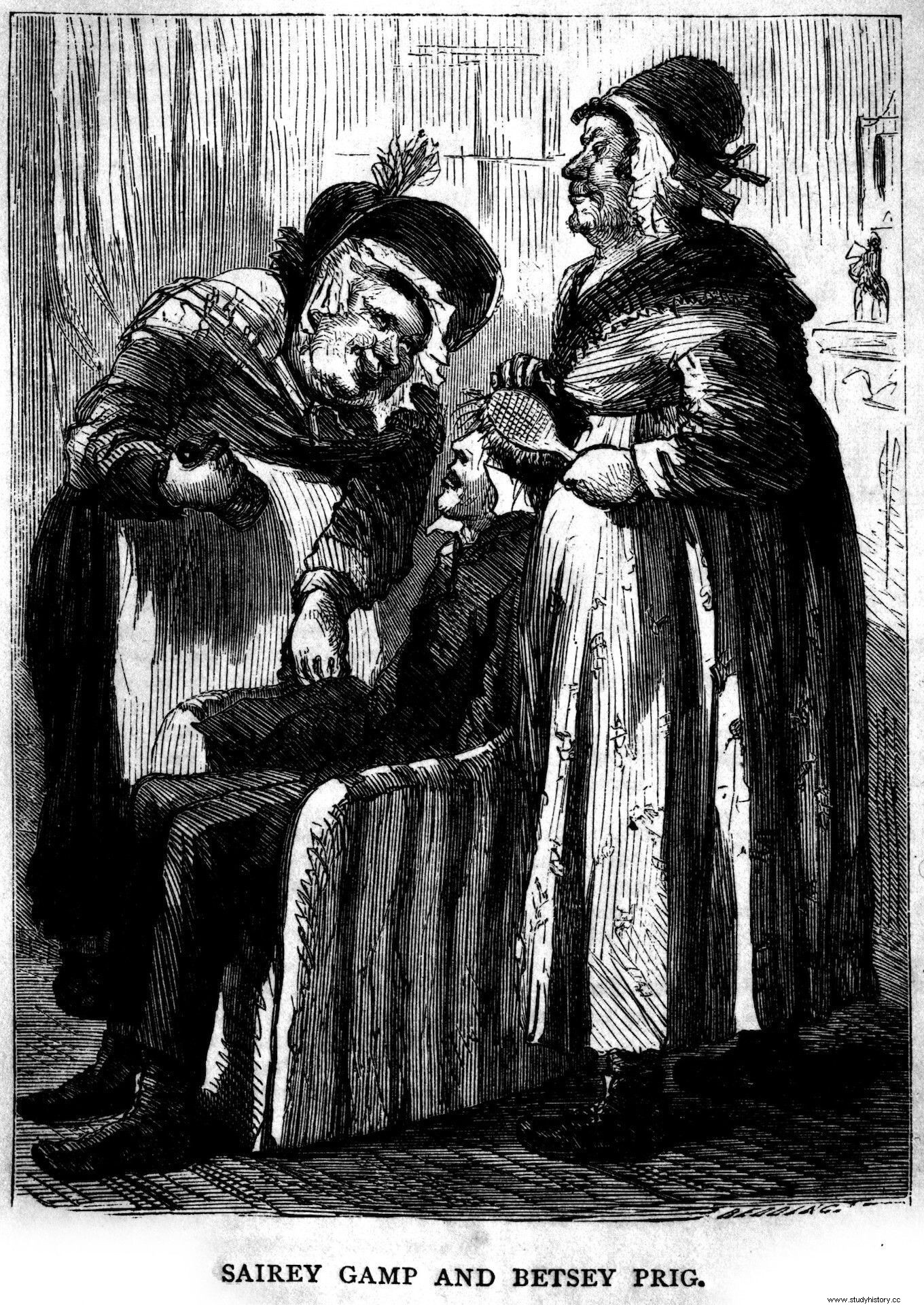
To understand how this illustrious path is forged, it is It is necessary to highlight the early interest that Florence showed for the mathematical discipline and the sciences in general. As well as her desire to be of help to other people, her desire that would lead him to flee from her destiny as a mother and wife to go beyond the limits that her status as a woman of high rank imposed on her at first. This desire to offer help to the needy was supported by her firm religious beliefs, interpreting this vocation as a call of a rather divine nature.
she decides to train as a nurse at the age of seventeen, since she feels the need to do something really useful, and she is used to visiting hospitals or helping the sick in the environment of her in her own houses. Her parents send her on a continental trip, realizing that they could not dissuade that idea from her head, even though her wish had been for her to follow a normative path and get married as soon as possible. Florence she travels through Egypt, Greece and Germany, being in this last place where she will be instructed as a nurse at the Theodor Eliedner Hospital / School , where she received four months of medical training, which will form the basis for her further development in the field.
she After this period she returns to London in 1853, to take charge of the Establishment for Sick Ladies , destined for homeless women with health problems, in which despite assuming a position of vital importance for the organization of the place, she works non-profit training other nurses with the knowledge acquired during her trip and the brief previous training which he received in Germany. Florence demonstrated during her period as head of the establishment, that she could project the profession in a way never seen before, always moved by a tireless capacity for dedication to the health and well-being of patients. This led him to establish certain modifications such as the installation of hot water or the establishment of an elevator. Going beyond the health field, Florence was concerned with the person, beyond the patient, ensuring that the women who recovered their health in the institution could find a job and stabilize their lives.
Florence Nightingale and the Crimean War
That same year the conflict will break out that will completely change Florence's life, and that will change the development of nursing in the same way. It is about the Crimean War (1853-1856) , conflict that pits the Russian Empire against the alliance formed by the United Kingdom, France, the Ottoman Empire and the Kingdom of Piedmont and Sardinia. Fear of Russian expansionism and the possible disappearance of the Ottoman Empire unleashes a violent conflict on the Crimean peninsula. In 1854, Florence would arrive in Istanbul with a group of nurses under her supervision, who will be assigned the Scutari military hospital with the intention of supporting the health personnel who worked there.
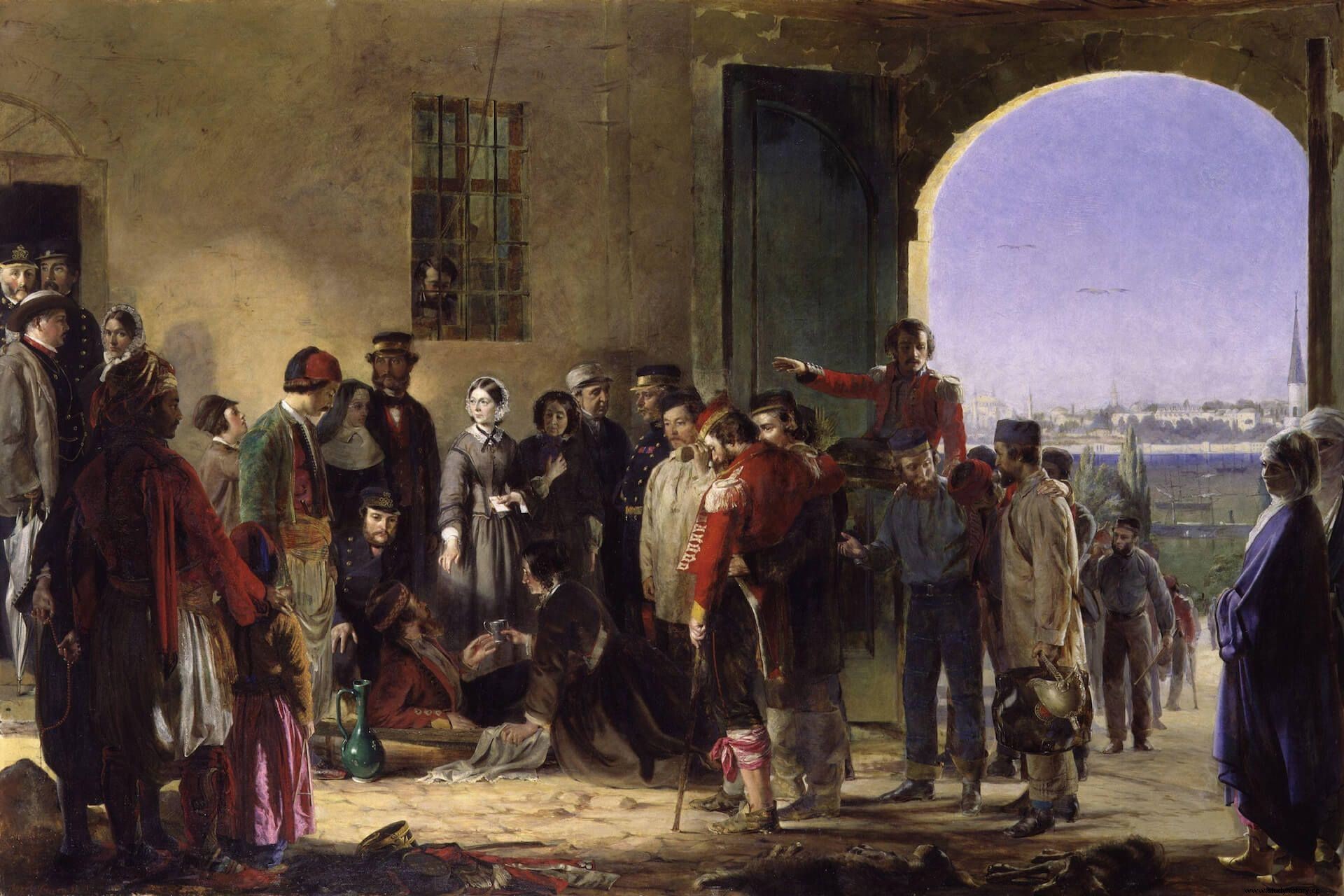
What they witnessed did not leave them indifferent. The conditions in which the wounded soldiers subsisted were deplorable, and the lack of hygiene, means and adequate medical care increased the proliferation of viral diseases that worsened the health of the residents, contributing to a slow and sometimes non-existent recovery. There seem to be two war fronts, the battlefield itself and the war waged by wounded soldiers to survive such salubrious conditions.
It is here when the figure of Florence Nightingale takes on a fundamental importance, for the soldiers she becomes a saving entity, the light in a conflict where a certainly dark panorama was presented. Florence realized the hard work she would have to do to reduce deaths and although during the first months these remained at the same figures, in 1855 she managed to get a government commission to go to the place to carry out a thorough cleaning and provide surgical material.
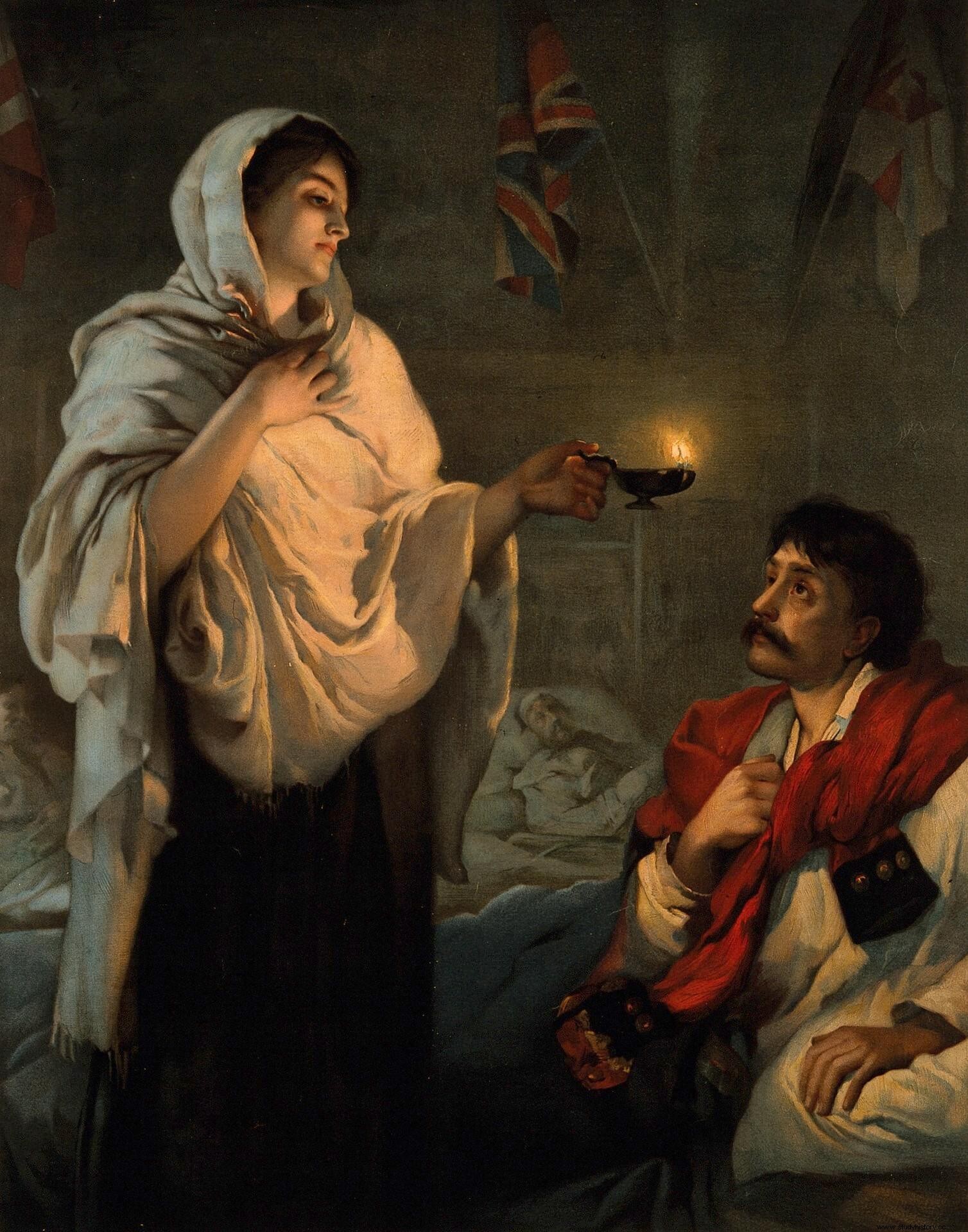
Deaths dropped when Florence's hygienic discipline began to be applied in a compulsory way in the hospital. She forged in this way the legend of the lady with the lamp , since she used to walk around in the gloom of the night with an oil lamp in order to check on the condition of the sick. It was said that the soldiers admired her work and appreciated the importance of her work.
It would be a mistake not to mention another of the fields in which Florence Nightingale worked to demonstrate the importance of her health strategy, statistics . It is claimed in some cases that she was the first to use statistical graphs to try to persuade the authorities. She herself carried out a large number of studies to try to demonstrate how mortality varied in relation to the quality of nursing care received by those affected and how hospital conditions could be improved.
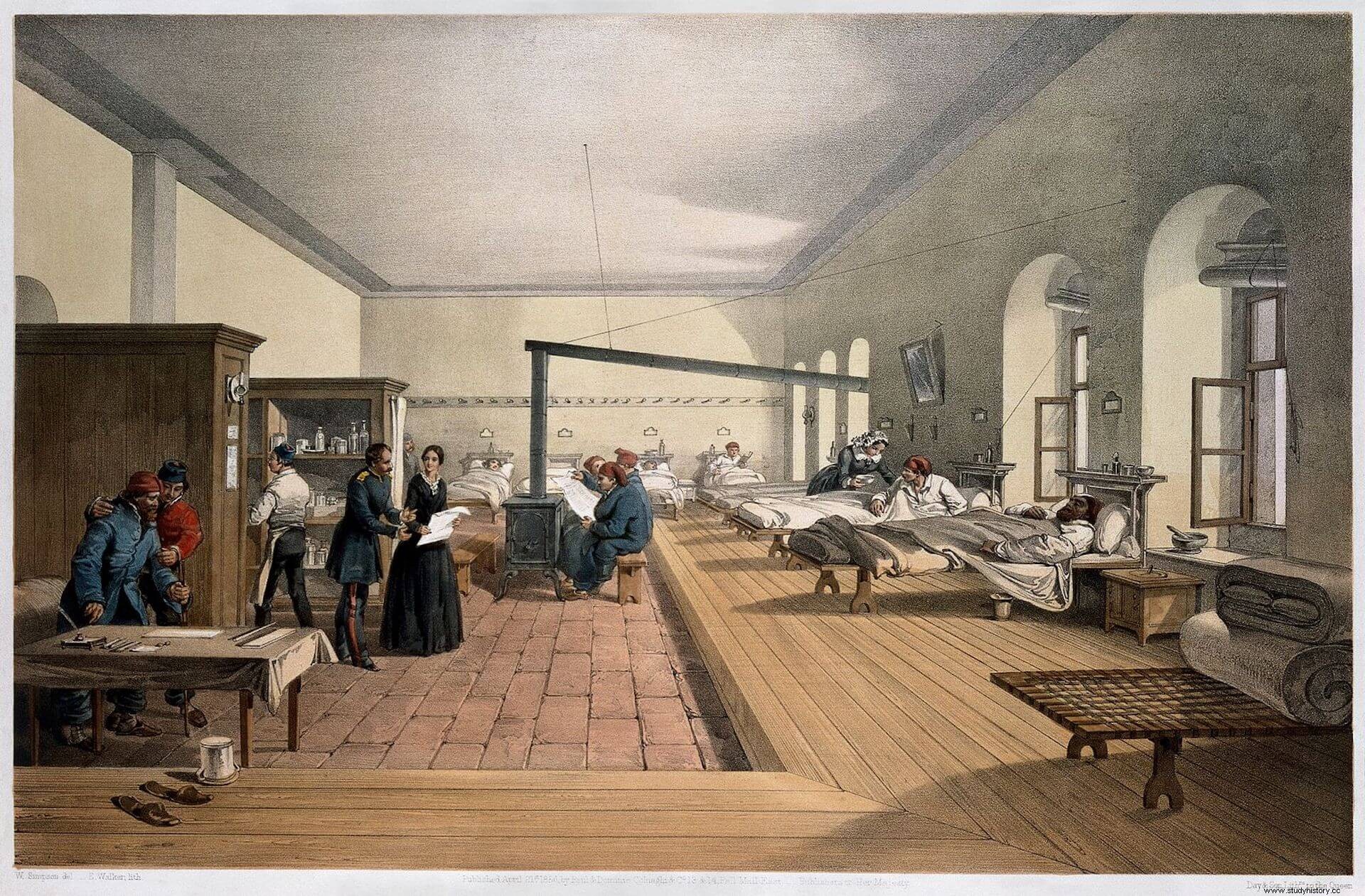
From 1858 he published several reports that would revolutionize the modes of use of the graphics and their purpose, among them we can find your Report for the real commission o Notes on the reasons that affect the health of the British Army . Together with the statisticians William Farr and John Sutherland, she made a graph through which she managed to show that the cause of most deaths was due to infections due to lack of hygiene and not so much to injuries received at the front. . This graph first takes on a circular distribution shape that today is known as a polar area plot.
In 1860 she would open her own nursing school at Saint Thomas's Hospital in London. This school is secular, the first to be separated from the ecclesiastical sphere, and it is also evident that the trade has taken on a professional character, reaching its institutionalization and becoming a compulsory discipline. A year earlier, Florence had written a small but important manual entitled Notes on Nursing:What It Is and What It Isn't , a point of support for the subsequent creation of the academy and with an amazing long-term usefulness since it still continues to serve as a reference in the world of nursing today.
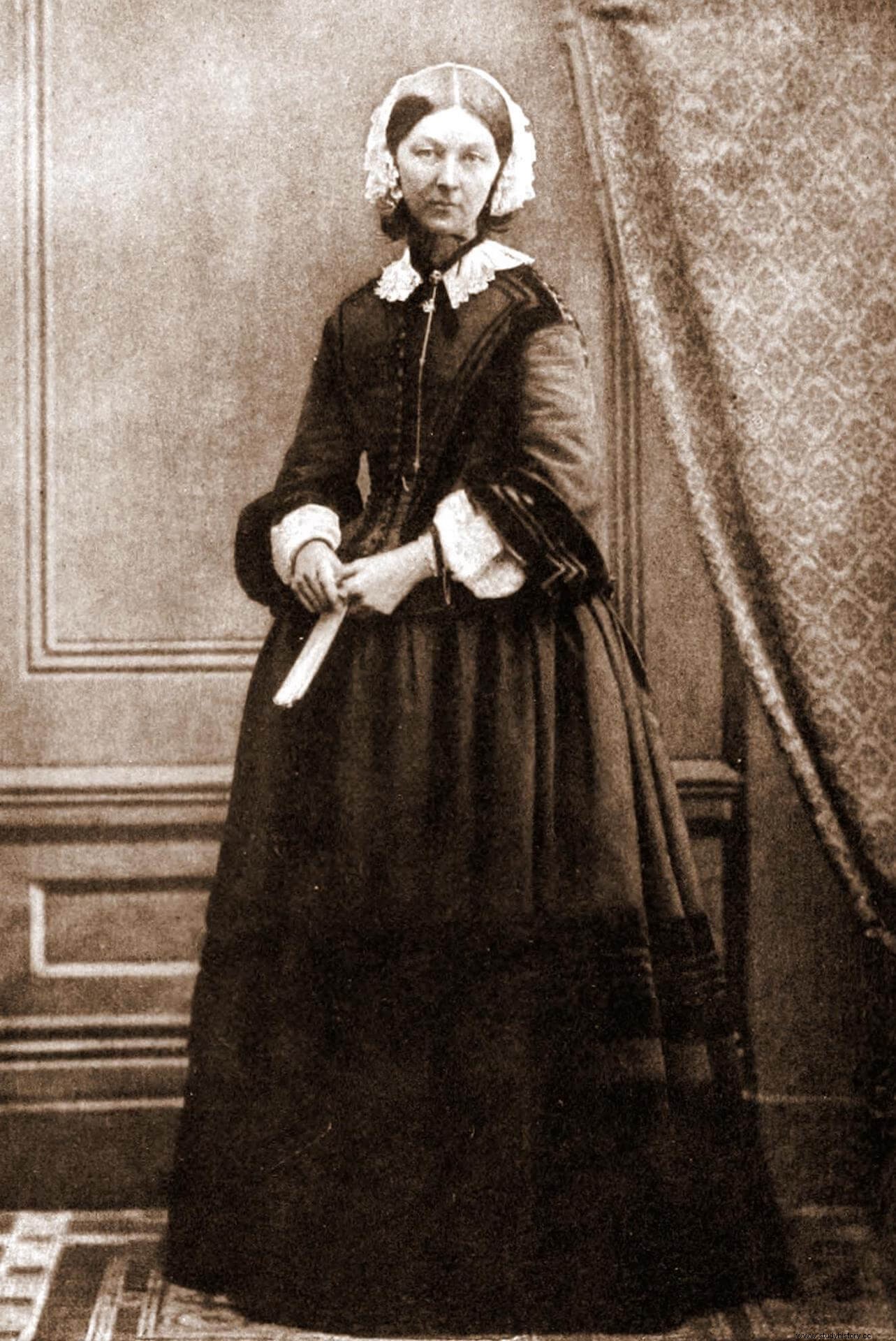
This book is mainly about how to observe a patient and how to think about it to achieve a quick and effective solution. In the same way, she deals with the issue of health within the home to promote well-being and the importance of cleaning and ventilation. Another issue that Florence dwells on is the fact that children are much more vulnerable than an adult to any harmful substance, and in the same way their care must be different. Light, fixed hours, cleanliness, ventilation and exhaustive observation are some of the key points that Florence considers essential for the correct recovery of the patient and her well-being during it.
On many levels Florence Nightingale has given us an example and a legacy. Example in the sense of splashing the history of women with nuances of courage and entrepreneurship that have marked a model to follow. Fate offered her few chances to leave her mark, however she played some cards that did not correspond to her in order to forge her own path based on breaking gender roles in labor introduction. It could be affirmed that Florence represents the feminist ideal that rebels against the destiny imposed by her condition as a woman and that she also allows herself the right to be a pioneer in her field, to contribute her own innovations and to have them recognized and respected in favor of the advancement of matter.
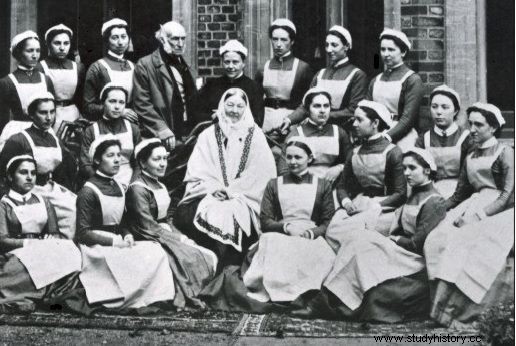
Facing first what her family expected of her , renouncing the marriage that was assumed and standing up to the masculine idiosyncrasy that made up the upper echelons of the army and health and political institutions. Finally, she prevailed over social impediments and was able to carry out everything she set out to do, perhaps with less agility and more obstacles than she would have liked, but opening the way so that other women with purposes beyond their reach could be encouraged to seek your own success.
From Florence Nightingale, nursing would witness its progressive gestation as an academic discipline and would acquire vital importance for the correct treatment of the sick, essential to complement medical work. Because of her self-taught character and her ability to work under high-pressure conditions such as in an armed conflict, the figure of Florence serves as an inspiration for many nurses around the world. In her honor, a medal was created to honor health personnel who work in conflict zones or intervene in natural disasters. Florence Nightingale knew how to empower women as well as elevate the profession of nursing and push both concepts beyond unsuspected limits.
